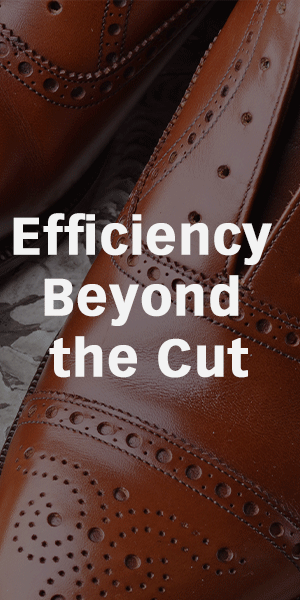Weighing up the gains

Adidas designed the Adizero Adios Pro Evo 1 to be a staggering 40% lighter than any other shoe, helping to decimate the women’s world record marathon time in the process.
German sportswear brand adidas grabbed the headlines it hoped for when Ethiopian long-distance runner Tigist Assefa smashed the women’s marathon world record in Berlin in September wearing its latest elite product, the Adizero Adios Pro Evo 1. Coming in at 2:11:53 – two minutes faster than the previous record – Ms Assefa said running in them was an “incredible experience, like nothing I’ve felt before”.
Weighing just 138g, the road-racer is 40% lighter than any other racing ‘supershoe’ adidas has created. It is inspired by the same technology as the Adizero Adios Pro 3, but with tweaks to substantially reduce the weight. “The Adizero Adios Pro Evo 1 is our own ‘impossible is nothing’ story,” says Patrick Nava, vice-president of product, running and credibility sports at adidas. “We set ourselves the goal to create a racing shoe that is packed with the technology ambitious runners have come to love in the Adizero franchise, but at a weight we’ve never seen before at adidas. To do this, we explored every element of a racing shoe, balancing what we could remove or change to reduce the weight.”
This shoe includes a new version of the Lightstrike Pro foam, which is made in a non-compression molding process (although more details on this have not been published), and the sockliner and carbon plate have been removed. A new feature is a forefoot rocker, placed at 60% of the length of the shoe, aiming to trigger “forward momentum”. The outsole is also new and there is a new lightweight mesh upper. The shoe, minimalist in design, features translucent and see-through materials, acting as a metaphor for its lightness.
Throughout the development process, insights were gathered from elite athletes during in-camp training and testing in Kenya and in the company’s labs at the headquarters in Herzogenaurach, Germany. These included Olympic champion Peres Jepchirchir and two-time marathon winner Benson Kipruto, German national champion Amanal Petros and Tigist Assefa.
Elite testing
What the team came up with was an astounding advance in terms of weight. However, it does not come without some caveats. The first is price: retailing at £450, it is significantly more expensive than its predecessors. It is also double the price of Nike’s pro running shoe range, the Alphafly, which averages around £275.
The second caveat is exclusively: only 500 pairs were released in the first wave in September. Adidas is tailoring the shoe to experienced and professional runners, even stipulating the wearers should be running a marathon in less than 3 hours 30 minutes.
The third is durability. With a lot of the support stripped away to reduce weight, the shoes are only good for one race and a “familiarisation period”. This goes against the brands claims of trying to reduce waste, as the shoes will effectively have to be thrown away. Its target of making 90% of its articles “sustainable” by 2025, where sustainable is defined as showing environmental benefits compared with standard materials, seems to have been overlooked.
There have been mixed reactions from the running community – mainly because of the caveats mentioned – but there have also been rave reviews from others who have run their best races. Kenya’s Peres Jepchichir won her third world half-marathon title and Spain’s Carlos Mayo broke the Spanish half marathon record. The New York marathon men’s record was taken by Ethiopian Tamirat Tola, becoming the first to run it in under two hours five minutes. Although not breaking a record, fellow Ethiopian Sisay Lemma won the Valencia Marathon in December, and two others made the podium there in the men’s and women’s races.
Brand rivalry
A sign of its novelty, the Adizero Adios Pro Evo 1 featured in the US magazine Time list of best inventions for 2023. Also making an entrance was Nike, with its vented Aerogami jacket. The US rival’s Vaporfly and Alphafly franchises have dominated the long-distance podiums in the past few years, but adidas has proved it is back in the race. Another drop of Adizero Adios Pro Evo 1 in December quickly sold out, with consumers needing to be part of a ballot via its app to be even in the running.
Part of the thinking for producing such limited quantities could be for fear of criticism for the short shelf life, or simply the desire to keep the exclusivity and headlines. The cost, which could discourage average runners, is unlikely to be a deterrent for professional athletes, who already spend money on coaches, travel and training. For this set, the possibility of shaving seconds or even minutes off their personal best would mean the financial and environmental costs are worth it – the only question is whether they are fast enough to secure a pair.
The Adizero Adios Pro Evo 1 has been pared down to the bare minimum components.
All Credits: ADIDAS












